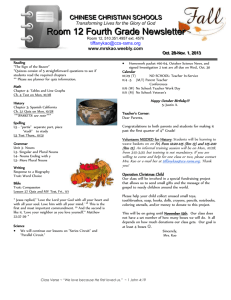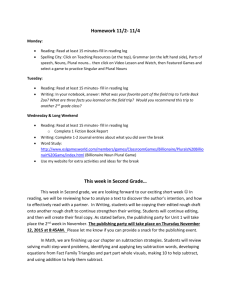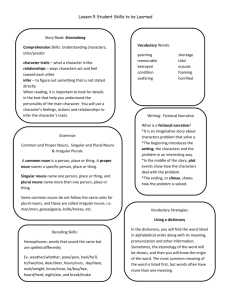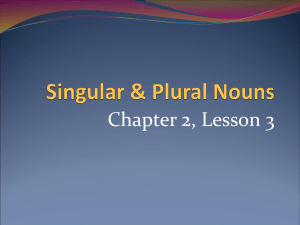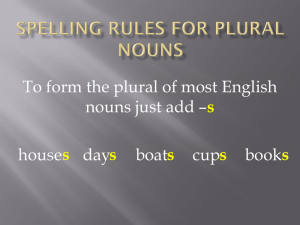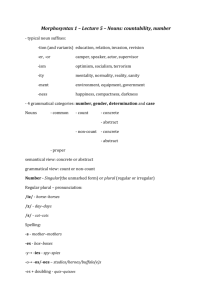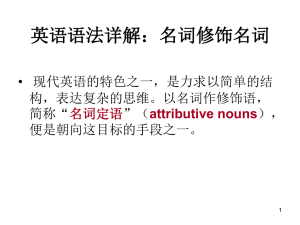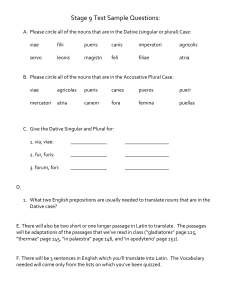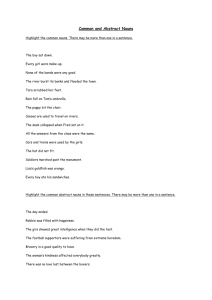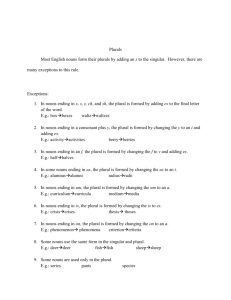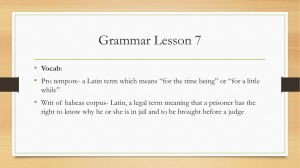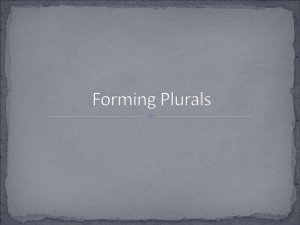Morphosyntax 1 – Lecture 9 – Determination III
advertisement
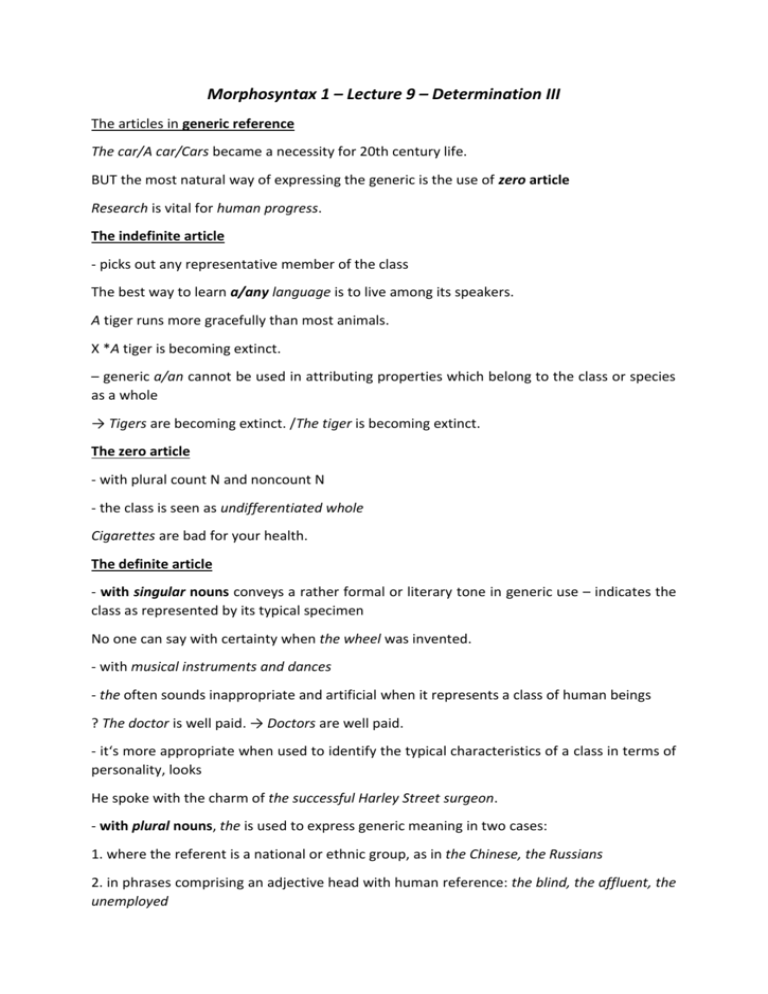
Morphosyntax 1 – Lecture 9 – Determination III The articles in generic reference The car/A car/Cars became a necessity for 20th century life. BUT the most natural way of expressing the generic is the use of zero article Research is vital for human progress. The indefinite article - picks out any representative member of the class The best way to learn a/any language is to live among its speakers. A tiger runs more gracefully than most animals. X *A tiger is becoming extinct. – generic a/an cannot be used in attributing properties which belong to the class or species as a whole → Tigers are becoming extinct. /The tiger is becoming extinct. The zero article - with plural count N and noncount N - the class is seen as undifferentiated whole Cigarettes are bad for your health. The definite article - with singular nouns conveys a rather formal or literary tone in generic use – indicates the class as represented by its typical specimen No one can say with certainty when the wheel was invented. - with musical instruments and dances - the often sounds inappropriate and artificial when it represents a class of human beings ? The doctor is well paid. → Doctors are well paid. - it‘s more appropriate when used to identify the typical characteristics of a class in terms of personality, looks He spoke with the charm of the successful Harley Street surgeon. - with plural nouns, the is used to express generic meaning in two cases: 1. where the referent is a national or ethnic group, as in the Chinese, the Russians 2. in phrases comprising an adjective head with human reference: the blind, the affluent, the unemployed Article usage with abstract nouns Count: meeting(s), arrival(s), discovery(ies) Genuine discoveries are rarer than gradual improvements. Non-count: employment, happiness, sleep, swimming – zero article when used generically Sleep is necessary for good health. - also when the N is premodified She‘s studying European history. - when the N is postmodified → the (cataphora) human evolution – the evolution of man Even a noncount abstract N can be preceded by a/an – if the N is premodified and/or postmodified She played the piano with a remarkable sensitivity. Proper nouns - they lack article contrast: Paris - *the Paris - *a Paris - can be combined with descriptors: Senator Morse, Dallas Road - the concept of name extends to some markers of time and to seasons that are also festivals (Monday, March, Easter, Passover, Ramadan) – capital letter - exclude such features as determiner and number contrast *The Newer York Times - most PN are singular and don‘t have a plural or vice versa Indonesia - *Indonesias; the West Indies - *a West Indy BUT: There are several places called Richmond. There is a Richmond in the south of England and a Richmond in the north, not to mention a dozen Richmonds outside the British Isles. - a surname in plural → „the family called X“ the Wilsons, the Joneses - admission of number and determination with the names of days, months, and festivals She'll be here on Monday. She spends her Mondays here. - we can use a famous name to mean the type that made it famous Lu Xun has been known as the Chinese Gorki. - stressed the means „the well-known person/place called X“ A: I used to know John Lennon quite well. B: Surely you can‘t mean THE John Lennon? - a means „a certain person/place called X but otherwise unknown“ A Mrs. Robertson was trying to contact you this morning. - Modification – PN can usually be modified by non-restrictive post-modifiers: Dr Brown, who lives next door, comes from Australia. - premodifiers – adj with emotive colouring: dear little Eric - in formal style – adj between the and PN: the beautiful Princess Diana - PN can temporarily accept restrictive modification: The Dublin of Joyce is still there for everyone to experience. (The features of Dublin reflected in Joyce's writing are still there.) - partitive meaning – usually „the“: during Easter – during the Easter of that year Names without article 1. Personal names 2. Temporal names a) names of festivals, religious periods b) names of months and days of the week 3. Geographical names a) extraterrestrial b) continents c) countries, provinces, etc d) lakes e) mountains f) cities, towns etc g) streets, buildings, parks, hills, etc. = locative names Names with the definite article 1. Some titular names of persons and deities: 2. Geographical names of plural form a) groups of islands b) mountain ranges 3. Names of rivers, canals, seas, expanses of water, areas of coastline territory 4. Geographical names of the form the N1 of N2 5. Names of theatres, galleries, hotels, restaurants, major buildings and public institutions 6. Names of ships and (less commonly) aircraft 7. Names of journals Nouns relating to region and nationality Example (Russia): 1. General adjective: Both the men are Russian. 2. Language name: She reads Russian well. 3. Singular noun with specific reference: He is a Russian. 4. Plural noun with specific reference: There are several Russians among my students. 5. Plural nouns used generically: The Russians are a deeply patriotic people. A lot of nouns relating to nationality are formed in this way but there are also irregularities! – see the Nationality nouns file!
